#tw; holocaust / shoah
Explore tagged Tumblr posts
Text
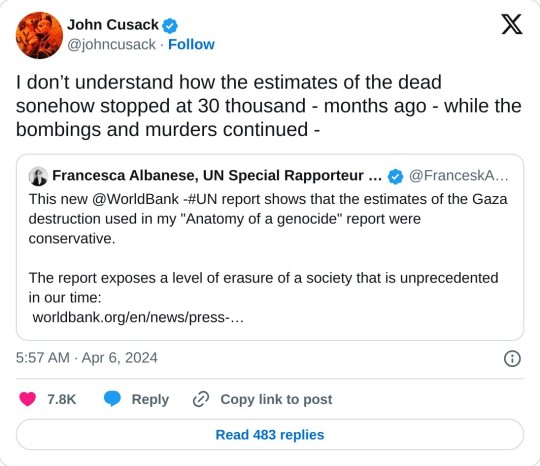
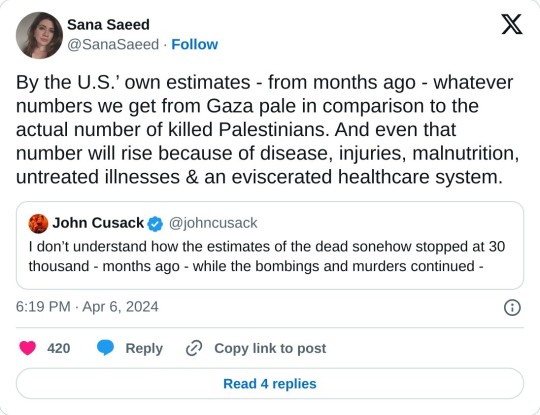
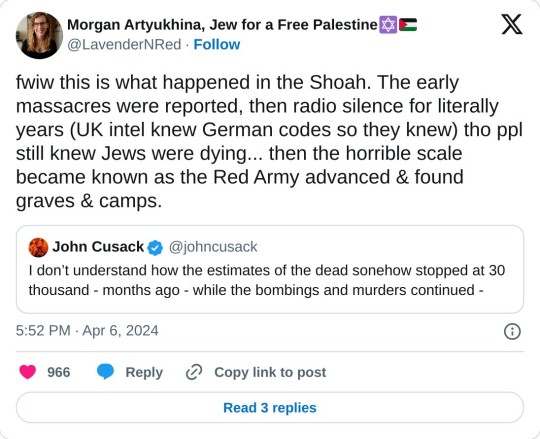
#yemen#jerusalem#tel aviv#current events#palestine#free palestine#gaza#free gaza#news on gaza#palestine news#news update#war news#war on gaza#gaza genocide#genocide#shoah mention#holocaust tw#famine#epidemics
2K notes
·
View notes
Text
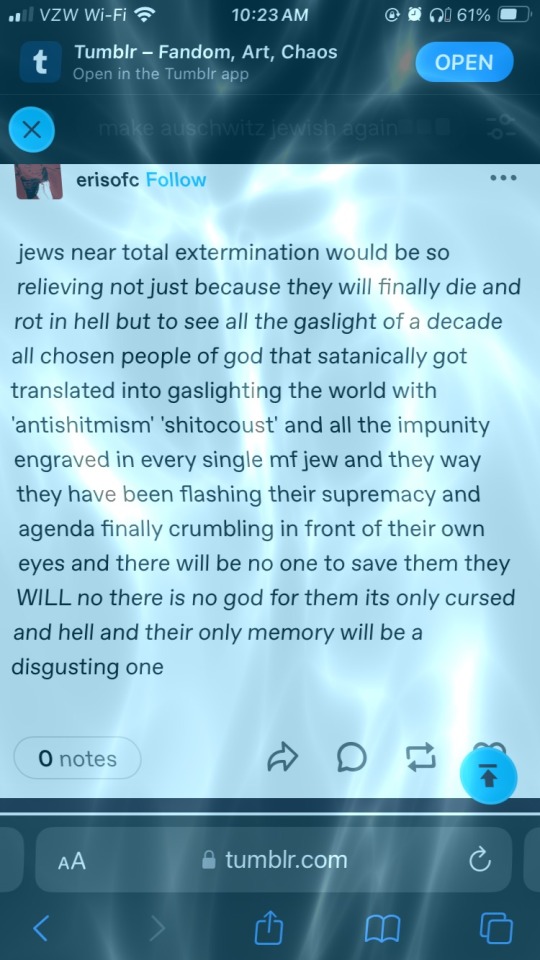
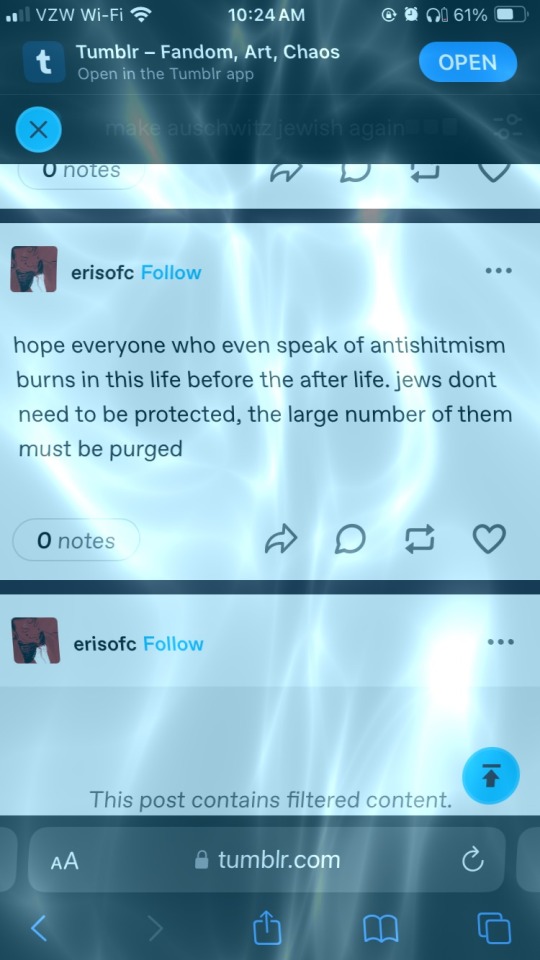
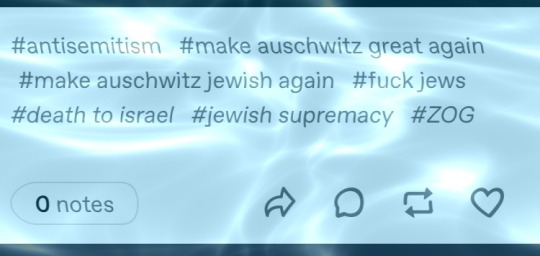
“make auschwitz jewish again”
there are ACTUAL OUT AND PROUD NAZIS on this website. and literally nobody but the jews are talking about it.
let me repeat— there are people who think every jewish person or the majority of them deserve to DIE.
there are fucking nazis on this website
#this is fucking disgusting btw#tw antisemitism#tw holocaust#tw shoah#jewblr#jewish#antisemitism#this isn’t okay.#people need to TALK ABOUT THIS#okay to reblog#tw nazi#the jews are tired#utterly exhausted
431 notes
·
View notes
Text
I yearn for how big my family could have been if the Holocaust hadn't happend. The family trips to Ukraine, to Poland, to wherever my cousins would have spread to if they hadn't been slaughtered in the most horrific manner.
I weep for people I have never met, for the entire villages erased at Treblinka, Sobibor, Belzec and the rest. The stories, the traditions, the recipes, the vibrant lives simple extinguished because of unfettered, unrestrained, and unchallenged hatred.
I am thankful that those who survived told the stories of those who did not, to ensure they are not blotted out of this history books; to make sure their existence endures, even if their lives do not.
And to those whose names are redacted from the annuls of history, whose very beings were reduced to ash as their existance was erased from the face of the planet, I'm sorry. I'm sorry you were killed in the most terrible of ways. I'm sorry you were reduced to nothing more than a statistic. Despite being sent directly to death and avoiding the dehumanising tattooing, you were still forced to become nothing more than a number. A number slung around today by people trying to spread the same hatred that led to your death. Even if there is no marker with your name, and no being left who remembers you, you mattered. You existed and you mattered and I may not know who you were or what you looked like, despite the fact that all I know of you is how you died and not how you lives, please know I carry you with me wherever I go. I just hope that it's enough
241 notes
·
View notes
Text
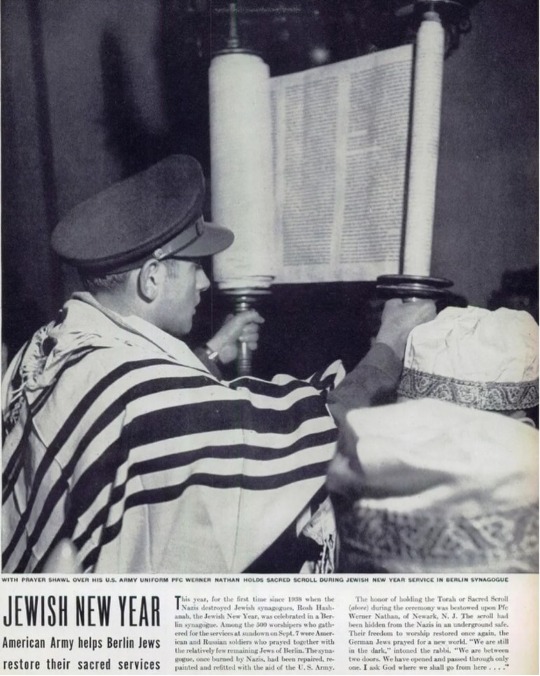
via via_maris (on ig):
In 1945 in Berlin, legendary LIFE Magazine photographer Robert Capa documented the first Rosh Hashanah service held in the city since 1938 at Fraenkelufer, a synagogue that the U.S. Army had helped restore after the Nazis torched it. The text reads:
'This year, for the first time since 1938 when the Nazis destroyed Jewish synagogues, Rosh Hashanah, the Jewish New Year, was celebrated in a Berlin synagogue. Among the 500 worshipers who gathered for the services at sundown on Sept 7. were American and Russian soldiers who prayed together with the relatively few remaining Jews of Berlin. The synagogue, once burned by Nazis, had been repaired, re-painted and refitted with the aid of the U.S. Army.
The honor of holding the Torah or Sacred Scroll (above) during the ceremony was bestowed upon Pfc Werner Nathan, of Newark, N.J. The scroll had been hidden from the Nazis in an underground safe. Their freedom to worship restored once again, the German Jews prayed for a new world. "We are still in the dark," intoned the rabbi. "We are between two doors. We have opened and passed through only one. I ask God where we shall go from here."'
#rosh hashanah#judaism#fraenkelufer synagogue#never again#jewish resilience#jewish heritage#jewish history#ראש השנה#jumblr#tw shoah#shoah#the holocaust#u.s. army#robert capa#life magazine#photography#1945#berlin#uploads#repost#torah scroll
229 notes
·
View notes
Text






#holocaust tw#tw holocaust#holocaust#holocaust remembrance day#shoah#tw shoah#shoah tw#jumblr#antisemitism
101 notes
·
View notes
Text
Saw a post recently from @jewish-sideblog recently about how people view the scope of the shoah and it kind of solidified something that's been bothering me for a while now. I think one thing that goyim fundamentally don't understand about the shoah is that it had huge effects on Jewish communities in the whole world, not just Europe, and not just during the genocide itself. Like, two of my grandparents were born and grew up in the British mandate. Amin Al-Husseini, the grand mufti of Jerusalem at the time, literally met up with Hitler to discuss the implementation of the shoah and a possible final solution in the Arab world. He also barred Jews from escaping to the mandate. If the shoah had just gone on a little longer, that part of my family would probably have been murdered
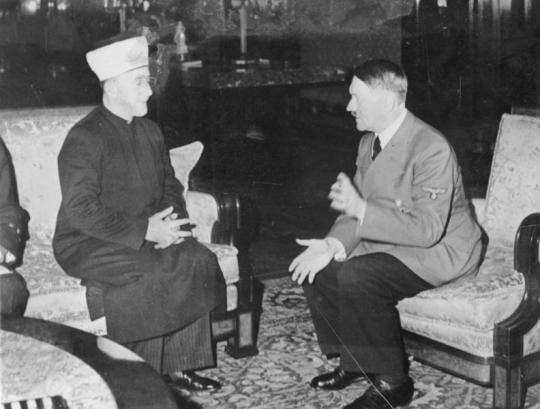
The shoah had gigantic ripples in the Middle East. Without it, the Mirzachi expulsion wouldn’t have been able to happen. And the expulsion still affects Mizrachim today. Most of us have bad family stories, most of us can't even visit the places we spent the diaspora in. The highest number of Jews in Islamic MENA countries is 10,000 in Iran, the place my family is from, where there used to be 100,000. In the Arab states it is so much worse, with the highest being around 1,00, but most countries having less than 50
That’s just one example, but there’s many more. This stuff went so far as to affect Ethiopia, which expelled its ancient community of Jews (or, at the very least, banned them from practicing or teaching Hebrew). Even years after the shoah, it caused so much suffering for Jews everywhere, wether Nazi countries or not. Frankly, it’s kind of baffling to realise that most people think it was a self contained event, when it was literally the climax of thousands upon thousands of years of violent and vitriolic Jew hatred— of course it would ripple. The shoah was an earth shattering event that changed Jews forever, it is something that every Jew, even ones who thankfully had no ancestors murdered because of it, feels so horrible deeply. Everyone, everyone, not just the Nazis, not just the Axis, was a part of it
#Holocaust memorial day#shoah tw#I feel like I could’ve written something way more powerful but it’s such a hard topic for me so here’s a ramble that barely makes sense#Jew hatred#antisemitism#vent ish#Jewish stuff
559 notes
·
View notes
Text
With the amount of full blown MENA Jewish genocide denial we see on the left nowadays it's very clear that a lot of you guys would be Holocaust deniers if you found it to be politically convenient.
#gingerswagfreckles#antisemitism#leftist antisemitism#jumblr#shoah#shoah mention#tw shoah#holocaust#Holocaust denial
136 notes
·
View notes
Text
When you try to make the legacy of the Holocaust a political favor done to Jews, you are paving the road to Holocaust denial. You're even planting nice trees on the boulevard!
To the historically illiterate Westerner, the true sincere belief is that Israel was "gifted" to the Jews as an apology for the Holocaust. This is actually a quite ingenious mental strategy to handle the cognitive dissonance of both wholeheartedly believing the society you live in was the "hero" of the story, but also that Western society is morally bankrupt and worthless.
See the West saved the Jews from the Nazis, but they also severely blundered by rewarding Jewish suffering with the state of Israel. It's clever. You can feel good about being the hero but also curse your own society for turning around and doing something that you'll argue was even worse in the long run (and they have been saying it's worse).
But then, it gets better! Since Israel is seen as an extension of Europe, and arm of European ideology and interest, it can be argued that the West had good intentions when they magnanimously decided to give Jews someone else's homeland. But they could never have predicted how brutal, how violent, how racist, how genocidal, the Israelis would end up being. You can curse the West but acknowledge it's not really their fault, because then it's not really your fault either.
All this context of the Holocaust being a "lesson to learn" or a precursor to some political reward for the Jews, that Jews have always been crafty and Westerners gullible... it's already on the precipice for those with conspiracy oriented minds. And this is already true and we've all seen it on social media. To those who think the Israel was a reward for the Holocaust, they think that the Holocaust warranted a "reward" in the first place. They can switch those around, and start thinking the Holocaust was a pretext to Israel. They can think that the Holocaust was exaggerated to wring more sympathy from the Europeans. They can think that the Holocaust was staged to trick the West into enacting the Jews' grand plan.
All it takes when you're at this point thinking of the Holocaust as transactional, is a genuine Neo Nazi, or perhaps a Hamas simp, to come along and say "Isn't it suspicious though? Don't you think there are inconsistencies? You should really check out..." and due to the coincidences and incorrect narratives that you made up in your brain, that have no basis in reality, you just might consider hearing them out.
So no, the Holocaust is not being weaponized or hijacked, for any reason. It was a historical event that happened. There are no lessons for the victims of all people to learn. There was no divine intervention or grand conspiracy to make the Holocaust about anything, or use it to bring about some political goal. You want there to be one or all of these things, because it justifies your preconceived notions about Jews.
So if a person is at this point, thinking the Holocaust was transactional, thinking that Israel was a reward, they're already on the road to Holocaust denial. And at this time in the Zeitgeist, they are way more likely than normal to go down that road, readily and eagerly. So be careful, be more cognizant if you actually care about the legacy of this genocide, about honoring its victims and its survivors and their descendants.
244 notes
·
View notes
Text
As we see an increase in antisemitism I have reflected on my experiences how many years ago being the token Jew in my eighth grade English class and I have found some aspects about it which lead me to believe are the parts that Holocaust Education in the U.S. goes wrong
Being taught in English Classes
Often such as in my state, the Holocaust is taught as part of English curriculum. English teachers aren't history teachers and they may be lacking in the skills or knowledge required to teach in the necessary depth to discuss the Holocaust.
My mother used to teach English but she had a history degree as well. She would lecture in class about everything leading up to and during WWII. I remember reading handouts she had in her classroom while I was waiting after school about the history of antisemitism. I didn't have any of this in my English class unit, because to put it simply most English teachers aren't my mother who also has the prior knowledge of how to teach history.
Additionally, as it is part of English, there is often more focus on Holocaust literature rather than the topic itself
This is where I think it gets extremely flawed if a person's primary knowledge of a historical period is Anne Frank or the incredibly inaccurate boy in the striped pajamas. A single account or work of complete fiction shouldn't be your main lens to view any topic whether it's the Holocaust, Slavery, Civil Rights movement etc.
You're in short blurring fact and fiction when discussing these things in the context of literature.
Sense of Finality
I feel like in my classes at least there was this idea that was kind of implied that hatred of Jews began and ended with Hitler and the Holocaust. I think this leads to misconceptions about antisemitism.
I feel this is a problem as I remember mistakenly getting that takeaway in school regarding civil rights in America. It was taught that Slavery was a problem, emancipation proclamation, MLK said I have a dream, and the civil rights act was passed and bam no inequality or racism. Later on, I fortunately learned this was flawed for many reasons. But not everyone does.
Not teaching about how the Holocaust happened
If you aren't given the knowledge of how centuries of hatred lead up to the Holocaust, I feel the main takeaway becomes that it was almost a random occurrence.
Many learn the Holocaust is bad without learning the signs of thinking that can lead neighbors to kill neighbors.
So many people don't have the basic facts such as Hitler being elected rather than assuming power.
I think when you learn of an atrocity of such scale without learning the human beliefs that brought about it, you have learned nothing.
I had a girl in my college uni class who was shocked when I said that antisemitism didn't begin and end with Hitler. I can see where she would get this idea if I at ten figured that racism ended with MLK.
Using Simulation
Slavery and the Holocaust should probably not be taught using roleplay. It usually goes poorly and you can find dozens of examples of how this goes wrong.
Sanitizing History
Exactly what it sounds like. But it's a major problem in general with history education in the US. I think we downplay westward expansion, and slavery in the us. When we downplay those it's easy to see how some begin to downplay the Holocaust.
We had a kid faint on the trip to the Holocaust memorial at some of the images. I think it was because they were inadequately prepared to see the horrors in image, my teacher didn't show any pictures in class.
Final notes
I don't blame teachers. Teacher's jobs fucking suck from what I've seen and many don't have the skills or resources or experience. I guess for now I think it's good to recognize those holes in our education and fill them ourselves through self education and life long learning
With the current political atmosphere of education of the unpleasant or difficult to discuss parts of history, i can only see things getting worse if we don't change anything. But like I said in the absence of a solid education which discusses these topics, it's important to educate ourselves and confront our lack of knowledge.
#tw shoah#tw holocaust#jumblr#feel free to add on with your school experiences#especially if you're jewish
166 notes
·
View notes
Text
Today is Holocaust Remembrance Day. This whole week l have been thinking alot about the Holocaust. So last night I re-read maus. One panel really stuck out to me during this reading. For context this is in Maus 2 when Art is talking to his therapist, a Holocaust survivor, about how he feels he could never measure up to his father who survived Auschwitz. At this point in the story his father had already past. May his memory be a blessing.
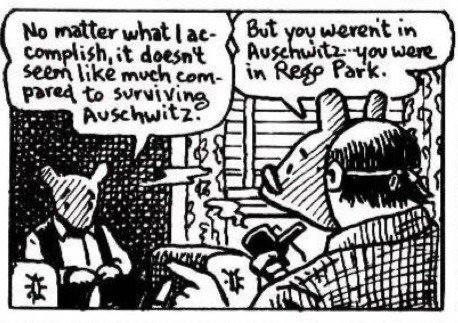
The dialogue, “but you weren’t in Auschwitz. You were in Rego Park,” hit me like a punch to the chest. I have no better way to explain the paradoxical guilt I felt and continue to feel as the granddaughter of a Holocaust survivor. I did not live during the Holocaust. It had ended before my grandmother reached eighteen years old. And yet, the Shoah seems to loom over me. Forever a reminder, that I am alive by sheer luck. My great grandfather’s parents as well as two of his brothers were murdered in Auschwitz. My great grandmother’s twin sister was also murdered in the Holocaust. Despite hours of research, I still have no idea where exactly she died.
Using the term guilty for what I feel doesn’t seem exactly right but there is no better word in the English language. Maybe if I was smarter or more articulate I could find better words.
A key theme of this chapter is intergenerational trauma. This is the same chapter that has this iconic image.
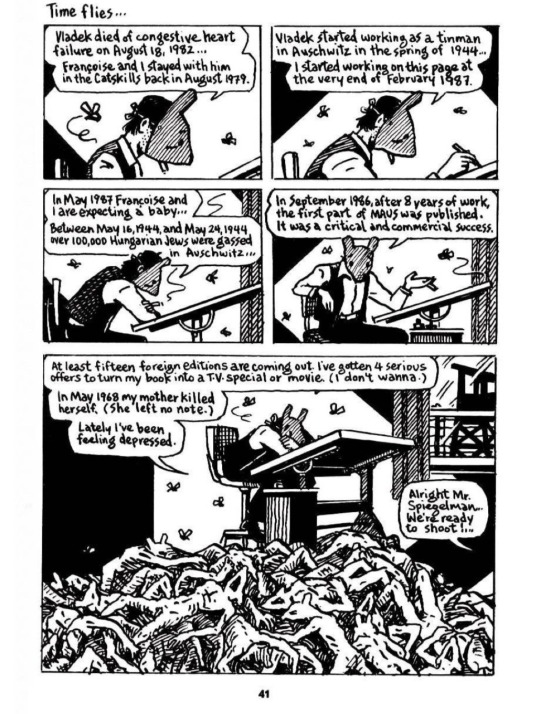
On this Holocaust Remembrance Day, I simply want to acknowledge the real and extremely painful intergenerational trauma and inherited survivors guilt felt by descendants of Jewish survivors. I know I struggled in the past with feeling like I even have any right to feel this way considering I am three generations removed from any of my family that were murdered in the Holocaust. If any other Jews struggle with thoughts like this, I want to assure you that your feelings are valid and real. Intergenerational trauma is complicated and the feelings that come with it don’t simply disappear once a certain number of generations from the event pass.
This post is specifically about the Holocaust and jewish intergenerational trauma stemming from our persecution and genocide. If this post resonates with you as a non-Jew who has intergenerational trauma I am glad, but please do not derail this post.
#history#holocaust remembrance day#holocaust#shoah#intergenerational trauma#jumblr#jewish history#shoah mention#tw shoah#holocaust mention#tw holocaust#judaism#maus#antisemitism#jewish trauma#survivors guilt#mental health
366 notes
·
View notes
Text
Me, naively at 10: oh hey I just read a bunch of books about people surviving the holocaust. This antisemitism thing is pretty bad. But where could it be coming from? All the Nazis are gone and we hate them. Everything is fine now right?
Me, at 19: oh fuck- it is everywhere. It has weaseled its way into the core of every social movement, if it didn’t start out like that in the first place. It is in every political talking point about how there’s a “secret entity” ruling America. It’s in calls for death or violence against “Zionists” and their “organizations” without the definition of what that means. It’s in the acceptance of antisemitic people and movements as long as they have other desired components. It is everywhere and there is no inclination to stop it.
#tw antisemtism#antisemitism#tw holocaust#tw shoah#shoah mention#jumblr#jewish#jewish convert#jewblr#jewish tumblr#fromgoy2joy thoughts
313 notes
·
View notes
Text
I understand and agree with pointing out that the Holocaust didn’t just affect the Jews that lived in Europe, and shedding light on the stories of Jews in other territories under Axis control. Every life lost or uprooted in the Holocaust matters and deserves to be remembered, not just Ashkenazim.
However, I’ve been seeing a bit of an overcorrection to the point that this valid & important point get twisted by some into the idea that Ashkenazim weren’t actually all that affected by the Holocaust at all and may have actually been safer than other Jews due to being White/European*, and I wanted to walk through exactly why that is so far from the reality and gets into really dangerous Holocaust Distortion.
The fact is that the vast majority of Holocaust victims were Ashkenazim. How do we know this? Well, first and most obvious without even getting into the numbers: the Nazis were most active in Eastern Europe, where most Jews were overwhelmingly Ashkenazi. Germany had colonies elsewhere and the affect the Holocaust had on Jews living in Africa and Asia is not any less important (and the fact remains that their stories are a genuine gap in Holocaust education that needs to be filled), but this doesn’t change the fact that the center of Nazi activity was Europe, and thus that is where their impact on Jews was most intense. But it’s important to not just go off of what seems “obvious” because what’s obvious to any given person is subjective and subject to bias. So let’s look at the numbers:
Estimates prior to the Holocaust put Ashkenazim at 92% of the world’s Jewish population (or roughly 14 million of the 15.3 million total Jewish population), meaning that it would be physically impossible for less than 4.7 million (or 78%) of the 6 million Jews murdered in the Holocaust to be Ashkenazim.

Even that number is only possible to reach by assuming that only Ashkenazism survived and literally every non-Ashkenazi Jew died in the Holocaust, which we categorically know is not the case due to the continued existence of Sephardim & Mizrahim, as well as other Jews. So the number has to be higher than 78%.
Additionally, the fact that the proportion of the world’s Jewish population that was Ashkenazi fell so drastically during to the Holocaust and still hasn’t recovered (from 92% in 1930, only recovering to close to 75% in the last couple decades) means that not only a higher overall number of deaths were Ashkenazim, but that a higher proportion of the total Ashkenazi population died than from other groups.
We also know that 85% of Jews killed in the Holocaust were Yiddish-speakers. The fact that Yiddish is endemic to Ashkenazi culture (and not all Ashkenazim would have even been Yiddish-speakers) due to assimilation means that at least—and most likely more than—85% of Jews killed in the Holocaust were Ashkenazi.
So, no, Ashkenazim were not some privileged subcategory of Jews who avoided the worst of the Holocaust. They were the group most directly devastated by it.
That doesn’t change the fact that the devastation the Nazis and their allies wreaked on other Jews is every bit as important to acknowledge and discuss, and must not fall by the wayside. The stories and experiences of all victims & survivors deserve to be heard, remembered, and honored, not just the most common or most statistically representative of the majority of victims. However, we can (and must) do that without allowing the facts of the Holocaust to be distorted or suggesting Ashkenazim were somehow less affected by the Holocaust or more privileged under the Nazis. The Nazis hated all Jews. Antisemitism affects all Jews. Period.
*without getting too deep into how categories like Ashkanzi/Sephardi/etc. don’t map neatly onto race like so many people seem to want them to. that’s a different post, but just pointing that out
240 notes
·
View notes
Note
Today I told my 4-year-old that we're gonna start playing the quiet game every day and try to go longer and longer without making any noise. She think it's just a game. Really, it's practice. Because I see the pre-Holocaust shit that's happening everywhere and I'm getting ready for the day we end up having to go completely into hiding in someone's basement or attic or something.
Then again, I've never met a single goy who'd actually hide Jews, so part of me wonders what the point even is.
This is heartbreaking. I have nothing to add, this vent speaks for itself.
178 notes
·
View notes
Text
This evening, I was privileged to perform music as part of our city's annual Holocaust Memorial Day commemoration. When deciding what to perform, I turned to a short piece of commentary in our Machzorim - single column of words down the side of the opening page for Yom Kippur.
This commentary was a translation from the testimony of Leon Szalet who survived the Sachsenhausen concentration camp.
Pain and... fear... kept us awake. A cloudless sky, thickly set with glittering stars, looked in upon our grief-filled prison. The moon shone through the window. Its light was dazzling that night and gave the pale, wasted faces of the prisoners a ghostly appearance. It was as if all life had ebbed out of them. I shuddered with dread, for it suddenly occurred to me that I was the only living man among the corpses.
All at once the oppressive silence was broken by a mournful tune. It was the plaintiff tones of the ancient Kol Nidre prayer. I raised myself up to see whence it came. There, close to the wall, the moonlight caught the uplifted face of an old man, who, in self-forgetful, pious, absorption was singing softly to himself.
... His prayer bought the seemingly insensible human beings back to life. Little by little, they all roused themselves and all eyes were fixed on the moonlight-flooded face. We set up very quietly, so as not to disturb the old man, and he did not notice that we were listening...
... When at last he was silent, there was exaltation among us, an exaltation that people can experience when they had fallen as low as we had fallen and then, through the mystic power of a deathless prayer, have awakened once more to the world of the spirit.
I have never quite forgotten the first time I read this when we got new Machzorim for the shul. As a musician, Kol Nidre has long been one of my favourite services. The melody is haunting and achingly beautiful. As a cellist, the arrangement by Max Bruch has long been incredibly close to my jear. Brunch was not Jewish but was taken to the Kol Nidre by a Jewish friend of his. So moved was he by the music that he transcribed it from memory and turned it into what is now one of the most famous pieces for solo cello and orchestra.
For me, the Szalet's account has bound Kol Nidre to the Holocaust in a way that most other festivals/services are simply not. I arranged the piece for my string quartet, passing the solo line, the mounful tune, between the players for what I would say was one of the most important and difficult performances of my life. I've played some pretty nasty solos before in concerts, I've played some monster quarters in my time, but performing at HMD was simply different. The privilege of being asked to be part of the ceremony was great and it was important to pay that the respect it deserved. It was truly an honour.
24 notes
·
View notes
Text
All gentiles need to read this. Read and understand. I am SICK of the Holocaust being used as a rhetorical device, and not a very real tragedy that the Jewish population STILL hasn't fully recovered from. (I cannot speak about the Roma population, who were also primary targets for extermination) It's not your political talking point. It's not your point of comparison.
It's.
Not.
Yours.
55 notes
·
View notes
Text
So, tommorow is `Asarah BəTevet, which was declared by the Chief Rabbinate of Israel to be Yom HaKaddish HaClali, the day to say Kaddish over those whose date of death is unknown. It was kind of an attempt to make an alternative to Yom HaSho'ah, since the latter occures during Nissan in which it is forbidden to mourn, but it didn't catch all too well.
However, this day is tied with the memory of the Holocaust. And I said, about a month ago, that I will tell my family's story on this day. So here it is. I will go from the Paternal side to the Maternal side, for simplicity's sake - this way, I won't have to state which great-grandparent it is exactly every time. I know I technically don't have to either way, but I'm pedantic and like to do things like that.
So, my first great grandfather lived in France. That's something all four of my paternal great grandparents have in common, as my grandparents got married in France and only later came to Israel. Anyway, he was born in Paris, but his family moved to Alsace at some point. They had monetary trouble, and he had to drop school to work. But that was long before the war.
By the time WWII came by, my great-grandfather (shortened to g.g.f. in future instances) and one of his brothers were serving in the French military. Outside of this brother, my g.g.f. had three brothers and two sisters I can remember. Some of them will be relevant later. Anyway, my g.g.f. and his brother both served in the Maginot line. Which, as you probably know, ended up being somewhat useless when the German army invaded through Belgium. They got orders to surrender, but the French soldiers still had time before the Germans will come to take them as PoW. They butchered a large cow to eat, though not in a Kosher way, so my g.g.f. asked the local rabbi if he should eat from it. The rabbi told him yes.
My g.g.f. spent the rest of the war in a German PoW camp. I think it was one specifically for Jewish prisoners, but it wasn't exactly like the Concentration Camps set up in Eastern Europe. He was forced to work at a shoe factory, I don't think the meals were any more Kosher than the one he had before being imprisoned, and their conditions weren't too good - but they seemed to have been fine. My g.g.f.'s brother who also served in the military - let's call him Henry - had run away, but my g.g.f. hadn't, leading me to think they weren't in the same camp. What I know of his imprisonment is that he was considered an expert in diviiding a round bread to seven equal parts (my dad think it means he was trusted by other prisoners to divide the food), and that he and the factory owner once collected a bunch of bedbugs from the beds of the prisoners to threaten the Nazi overseer with if he didn't give them better conditions.
Henry, as mentioned before, has escaped to join the Résistance. However, he was eventually caught by the Nazis and executed. In the meanwhile, the rest of my g.g.f.'s family have moved to southern France, to live under the Vichy regime - which was still antisemitic, but it wasn't Nazi Germany. There, my g.g.f.'s brother who we'll call Paul had gotten married to the woman who later committed her experience from the war to a book. My g.g.f.'s two sister went to the university there, I believe. One day, the Nazis came to collect all the Jewish students. Now, one of the two sisters seemed stereotypically Jewish, while the other did not, so the Nazis didn't think she was Jewish. When they took her sister, she told them that she was her sister in a futile effort to save her. Both have been killed in Auschwitz.
By the time the war was over, my g.g.f.'s father has lost three of his children, and didn't know what happened to the fourth. He died during Pesach of that year. I was told that when my g.g.f. was on his way to his family, he stopped to pray in a synagogue somewhere. One of the synagogue goers, who knew him, asked him why he didn't say the Kaddish. That was how he learned that his father died.
Moving forward to the woman who would become his wife, my great grandmother (henceforth g.g.m.): she lived with her family for the war, I believe. Her father was a lawyer who was involved in a lawsuit against a high-ranking member of the Nazi party who had sexually assaulted a French teacher. I'm not aware of all the details, but due to that the Nazis had a special interest in him. He had started the war in Paris, but fled south before the Nazis arrived. He stayed in southern France for a while and worked in the local Agudat Yissra'el chapter. Eventually, though, he had to flee with his family to Switzerland. I have a book written by my g.g.m. and her siblings about him and the war, but I didn't read it yet.
In regards to my other paternal great grandparents, I only know of their experience from the war vaguely. Both families have lived in Alsace, though in different cities, and spent the war hiding in villages, moving from village to village whenever necessary. It wasn't great, but they survived. I should probably try to learn more about this side, and it should be possible considering this is my last remaining great-grandmother, but she doesn't speak Hebrew too well and I have some trouble communicating with her. One thing she did tell me was that it's not good for Jews to learn the German language. A language which she herself knows decently, as she was born in Alsace and Alsatian, one of the commonest languages there, is more or less German. So there's that.
The other side has very different stories. My g.g.f. on there was born to a Chabadnik family in Czarist Russia and grew there through the rise of Communism. Now, when I say "Chabadnik" you have a very specific image in your mind. It won't be accurate for my g.g.f.'s time, because the latest Lubavitcher Rebbe (Z"L) has changed much in how they operate. Plus, I have my suspicions that he belonged to the Kopust brunch - suspicions that can't be confirmed due to a couple of reasons, one of them being that the Kopust Ḥassidut basically died out in the Holocaust.
My g.g.f. himself studied in an underground Yeshivah until he and his brother managed to get certificates to go to Mandatory Palestine. That happened in the early 30s, which is why this side of my family is different: most people in it managed to get to Eretz Yisra'el before the war even started. By the time it did, my g.g.f. was studying in a Musarnik Yeshivah - which, yes, is a bit weird for a Chabadnik. But to believe my grandfather, my g.g.f. ended up not being that much of a ḥassid.
Out of the rest of his family, I don't really know who died and who survived. He had a twin sister who died before the war, as (probably) did his parents. Some pf his other siblings survived as well. He himself became an author and wrote - among others - a book about a German Jewish family during the Holcaust. Non of it was written from personal experience as far as I know, though.
My g.g.m., his wife, was slightly less lucky. By the time she left Poland the Nazi invasion was just about to start. She barely left with one of the last ships to set sail from the area. She also had to fictitiously marry someone to get a certificate to get to her relatives in Eretz Yisra'el. Outside of the siblings that managed to get there before the war, though... the rest of her family died, as would've been her fate had she just missed her ship.
My last g.g.f. was Hungarian. Thus, for most of the war he didn't live under Nazi occupation - instead, he fought in the Hungarian army. Which also had an antisemitism problem, but it was durable. Towards the end of the fighting he got some sharpnel stuck in his leg and was send to recuperate in a hospital. While he was there, Hungary has resigned, and the doctor told him and another Jewish patient to leave because the Nazis have asked to be given the Jews. My g.g.f. obliged, even though he still didn't completely heal from his wound. The other Jew didn't. I don't think we know for sure what happened to him, but the "Final Solution" was applied to Hungarian Jews a bit more hastily than the others due to the Germans realizing they're about to lose. Which is to say, the Nazis tried to kill them faster.
My g.g.f. hadn't managed to hide from the Nazis forever, though. He was taken to a concentration camp eventually and was forced to participate in the Death Marches. We actually have a full video of him describing his Holocaust experience, which is I think the closest to a typical experience I have in my family. It's a bit hard to discern what he's saying in it, though, and I don't remember much. I do remember that he seemed to be very resourceful - he still had trouble walking from the sharpnel for a couple of years afterwards, but he still managed to survive the Death Marches. Upon being freed, one of his first decisions was to go to Eretz Yisra'el nearly immediately.
I'm pretty sure most of his family actually survived, oddly enough. For the one typical Holocaust survivor in my family (TM), he had a surprisingly happy ending. It still took getting through a bunch of bad things to get to it, though.
My last g.g.m. has gotten to Eretz Yisra'el when she was 13, a couple of years before the war, with her family. They survived, though their more distant relatives... well, one story I've heard from my grandmother is that there was much excitement when someone with the same last name as her maiden one was. However, I'm pretty sure this side of the family also has relatives in the Americas, and I know of one that lived in France who died just a couple of years ago, so it wasn't the entirety of the distant family as well.
And that's it, I suppose. That's what I know about my family history in the Holocaust. So I have relatives who died, and I'm alive today because my mother's side were Zionists.
#jumblr#judaism#jewblr#jewish history#holocaust#shoah#tw holocaust#tw shoah#family history#jewish family history#jewish tumblr#`asarah bətevet#yom hakaddish haclali#the ע quota strikes again#in case you were wondering why the heck I didn't use the word `aliyah#maybe Itamar be Avi was unto something with j replacing ע#might look ridiculous but can work#so everyone's favourite spelling of חנכה#janice#will be read as עניכה#I'm in.#my family comes from across europe more or less#though my paternal side is french/alsatian#which is why I'm considered a yekke
21 notes
·
View notes